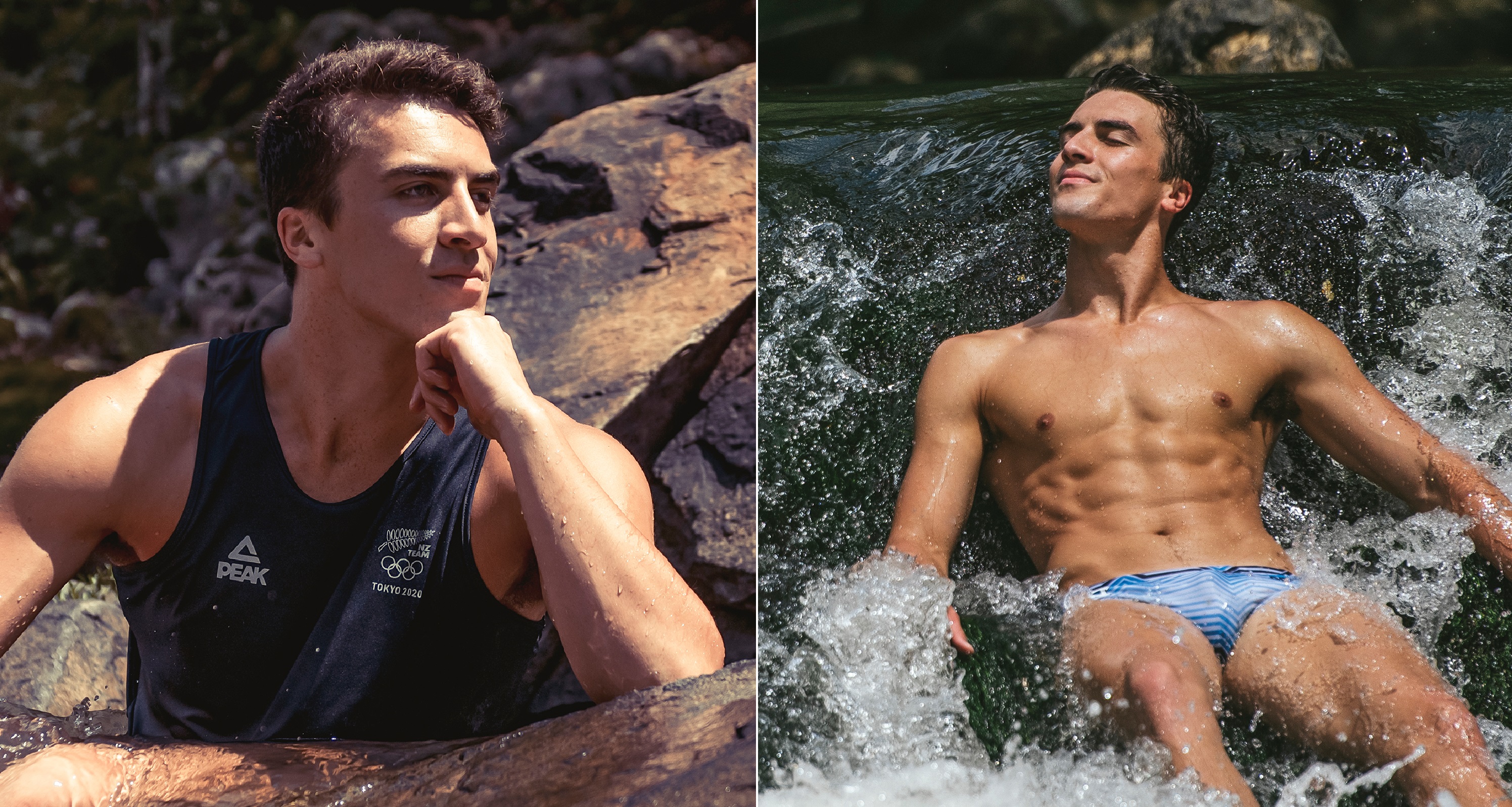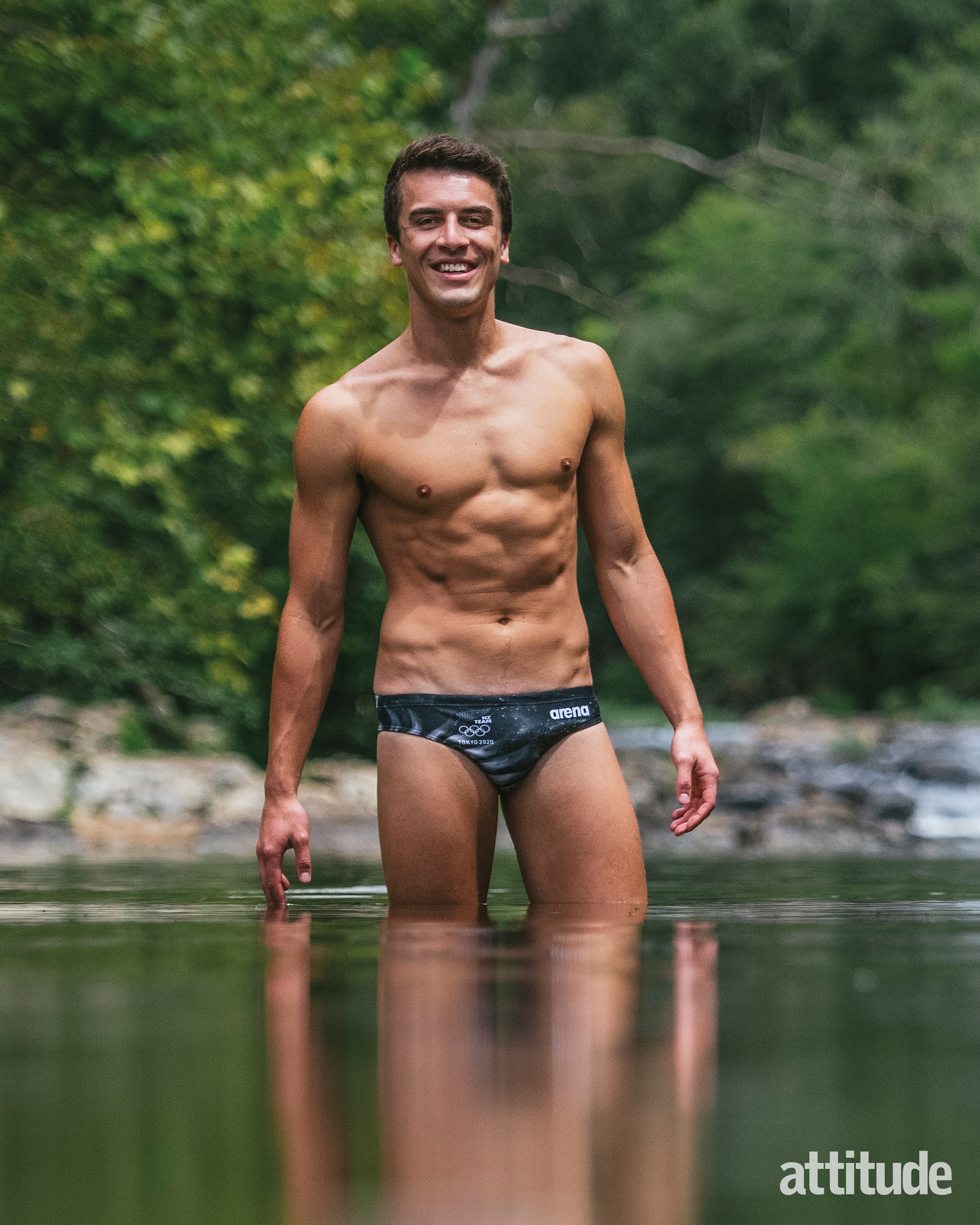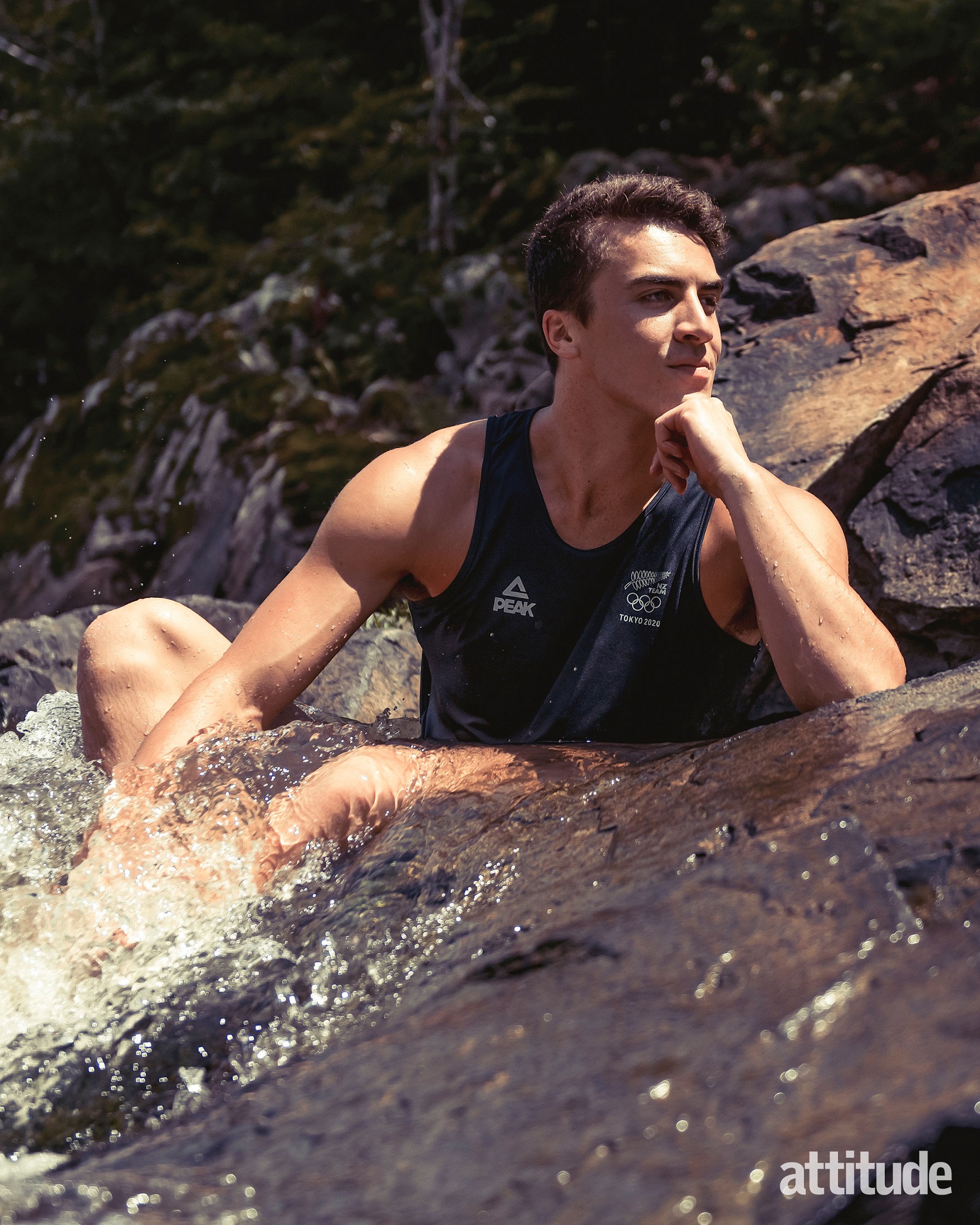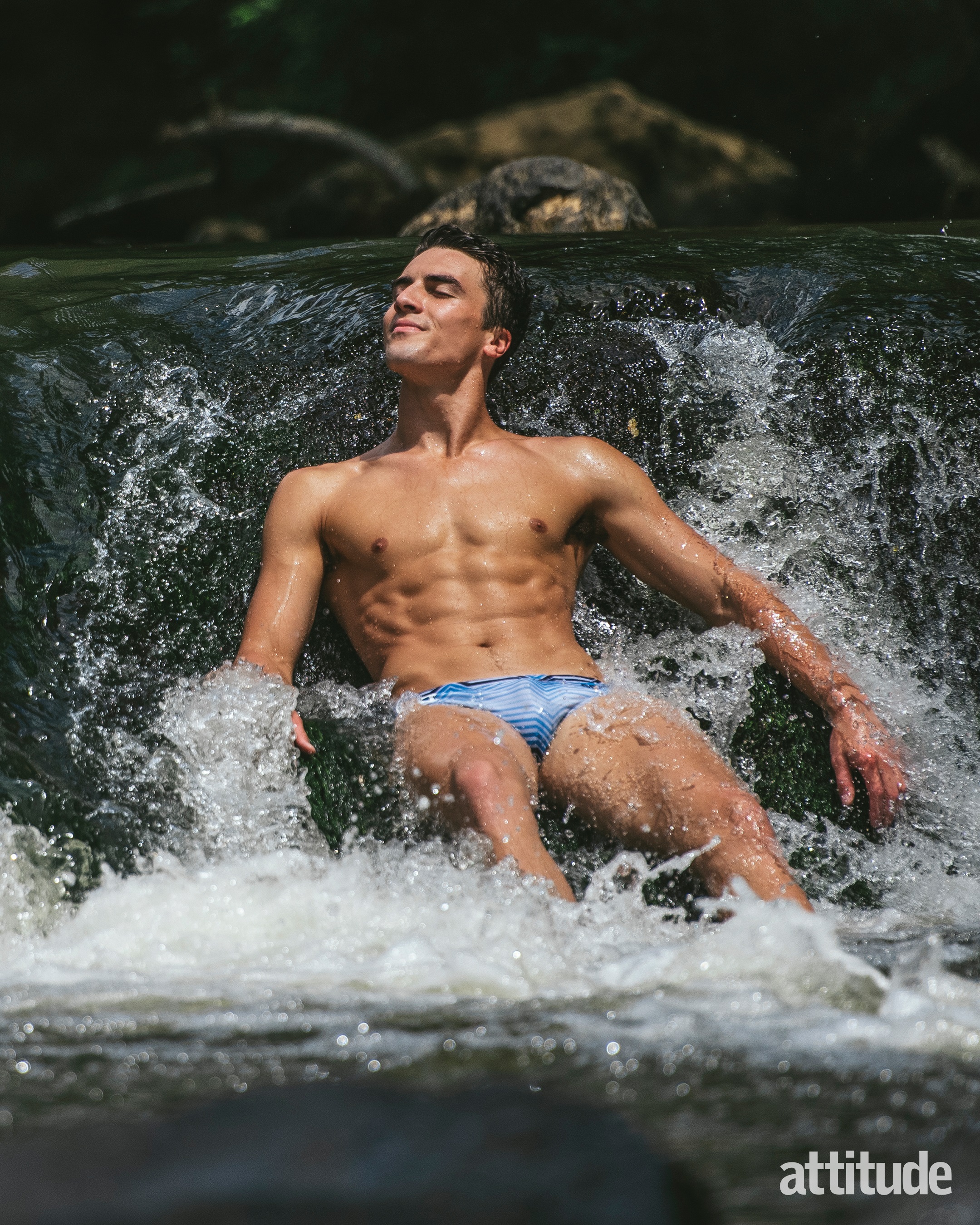Anton Down-Jenkins: Tom Daley and Matthew Mitcham paved the way for gay Olympians like me
The New Zealand diver, 22, talks Tokyo and LGBTQ representation in the Attitude October issue.

Words: Alastair James; Photography: Christopher Nieto
Anton Down-Jenkins, the first male New Zealand diver to qualify for the Olympics in four decades, says out athletes such as Tom Daley and Matthew Mitcham “paved the way” for other openly gay athletes such as himself to compete at the highest levels of sport.
For a sportsman who didn’t think he’d even qualify for the Tokyo 2020 Olympics, Down-Jenkins, 22, surpassed his expectations when he finished eighth in the final of the men’s three-metre springboard.
Although he’s currently spending some time away from the pool to catch up with his studies at the University of North Carolina, he’s already setting goals for the Paris 2024 Games.
As Anton appears in Attitude October Issue – out now to download and to order globally – he discusses the importance of LGBTQ representation and combatting homophobia in sport.

Anton Down-Jenkins talks Olympic diving and LGBTQ represenation in the Attitude October Issue, out now to download and to order globally (Photography: Christopher Nieto)
The Wellington-born athlete says the reason why diving as a sport seems so accepting when it comes to LGBTQ representation is because of people like Matthew Mitcham and Tom Daley; and that the idea of diving being a “gay sport” is a misconception.
“[I think that] because of high-profile athletes like Tom and Matthew succeeding at the highest level, people are just comfortable being out. That really reinforced, especially for me, that your sexuality has absolutely nothing to do with your ability to succeed. I think they definitely paved the way.

Photography: Christopher Nieto
“I think them [Tom and Matthew] being out definitely gave me that sense of security, knowing that my sporting community didn’t care. Going into the Olympic Games as an out athlete was more to do with the sporting culture in New Zealand and wanting to be a part of that representation for younger LGBT kids.”
This, he continues, is something he never had growing up, and which he says is “definitely lacking” today. He adds, “I don’t want people in sport growing up feeling how I did on certain occasions where, because of my sexuality, I either couldn’t succeed or almost had to succeed [more than] everyone else, as a form of apology for who I was.”

Photography: Christopher Nieto
As for the media storm that surrounded his fellow New Zealand Olympic team member, trans weightlifterLaurel Hubbard, Anton says, “It was really difficult to read a lot of things about her because it was so nasty, and I can’t imagine how that would have impacted her mental health and her performance leading into the Olympics.”
He counts himself lucky that he’s never personally been subjected to any homophobia in sport and that he’s had positive messages thanking him for his representation. On what needs to be done to combat pervasive and persisting homophobic attitudes in sport (generally) Anton thinks the key things are representation, media coverage and education.
“I think education around it [is essential] as well. A lot of sporting governing bodies could do a better job educating about issues like inclusion.”
Read the full interview in the Attitude October issue, out now.
Subscribe in print and get your first three issues for just £1 each, or digitally for just over £1.50 per issue.
